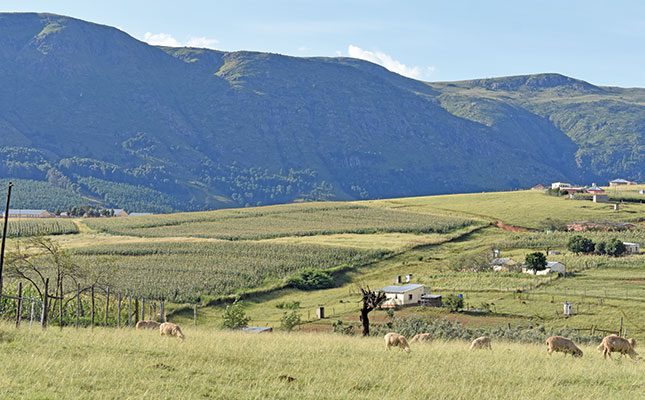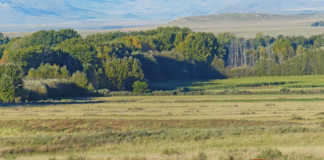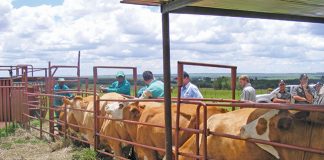
Photo: Hanlie du Plessis
In 2021, the Global Food Security Index, which measures food affordability, availability, quality and safety, as well as sustainability and adaptation, across 113 countries, put South Africa in 70th position in terms of overall food security.
One year later, South Africa moved to 59th place, making it the most food-secure country in Africa.
This significant improvement shows that the country is currently on a positive trajectory towards improving its food security. But in order for it to continue on this path, the agriculture sector requires significant transformation.
This means that emerging farmers will require even more support to make a greater contribution to the sector in order to boost South Africa’s food security while simultaneously improving their own lives.
Contributing to the cause
Through its Farmer Development Programme (FDP), Grain SA is doing its part to encourage transformation in the grain sector and food production in general. According to Dr Sandile Ngcamphalala, farmer development lead at Grain SA, the organisation has been investing in the sustainable development of emerging farmers from subsistence to commercial production since the early 2000s.
“Because our programme is about farmer development, our primary aim is to assist farmers who are actively growing grain to do so profitably and sustainably using the best available technology and practices,” he explains.
Ngcamphalala adds that Grain SA’s goal is to address food security and sovereignty in South Africa, help those who have access to land to generate incomes for themselves, create jobs, and protect the country’s natural resources.
“We’re blessed to be working in a sector that has the potential to contribute to all of the pillars of rural development. We care about agricultural development in South Africa, and we care about farmers growing their enterprises,” he says.
Barriers to growth
As with any development programme, certain factors can negatively affect progress. In the case of farmer development, these include:
- Knowledge, skills and experience deficits
Ngcamphalala says that in order to succeed in farming, it isn’t enough to simply have theoretical knowledge of the industry; producers learn from their years of experience in the field. In South Africa, however, developing farmers often lack the knowledge, skills and experience required to enter the commercial space.
“Since profit margins are constantly under pressure, there’s no margin for error, and we must help [developing farmers] to remain in business,” he says. - Limited access to finance
Ngcamphalala points out that emerging farmers are finding it increasingly difficult to obtain production loans. This is one of the areas in which Grain SA’s programme has shown its worth, as it teaches producers the financial skills they need to help grow their operations, and guides them into financial maturity. - Lack of adequate mechanisation
Ngcamphalala explains that years of very tight profit margins, in combination with limited access to credit, have resulted in the deterioration of emerging farmers’ tractors and implements. “You need to make money to be able to invest in mechanisation, and this is where we believe [Grain SA] also has a bigger role to play [through its FDP].” - Lack of access to land
Farmers need to grow crops on land that has the potential to yield a crop adequate enough to cover all production costs. However, many developing farmers only have access to low-potential lands where good yields are not possible. Many of these producers farm on communal land, which often isn’t adequately fenced, putting livestock at risk. The small areas of land also pose challenges to efficient mechanisation. Through its FDP, Grain SA aims to help farmers find solutions to these challenges.
Ngcamphalala says that because of these barriers, Grain SA approaches farmer development from a service perspective, providing producers with numerous resources through different platforms.
These services include:
- Study groups, where farmers can learn from one another;
- Demonstration trials and farmers’ days that provide producers with experiential learning experiences; and
- Information dissemination via Pula Imvula, Grain SA’s monthly magazine, published in five languages (English, Sotho, Tswana, Zulu and Xhosa), which focuses on developing farmers.
“Our vision is to contribute to the development of an inclusive rural economy in which all farmers have greater opportunities to participate meaningfully in the economic, environmental and social opportunities that the [grain] sector has to offer,” he points out.
A strong presence
Ngcamphalala adds that after years of working at grassroots level, the Farmer Development team now has a well-established footprint, with regional development managers, mentors and administrative staff in position to meet with farmers and identify their needs in order to offer the appropriate support.
“The FDP’s footprint presently extends to nine development regions [across South Africa’s nine provinces], and each has unique characteristics and needs,” he explains.
In each region, farmers are grouped as follows:
- Subsistence farmers who produce grain on 10ha or less of arable land;
- Smallholder farmers who produce grain on between 10,5ha and 100ha of arable land;
- Potential commercial farmers who produce grain on more than 100ha of arable land; and
- New-era commercial farmers who produce 250t or more of grain a year.
Overall, Grain SA’s FDP supports more than 15 000 grain farmers through direct financing for input support, mentorship, training and demonstrations on various topics related to grain production.
“The [high number of farmers in the FDP] is mainly due to the positive results that participants have achieved as a result of the programme, and the effects these successes have had in unlocking the commercial potential of rural agriculture,” says Ngcamphalala.
Most farmers who have participated in the programme over the years have seen growth in their operations.
“This programme proves that increased knowledge of weed control, soil health, seed selection, and financial and production planning can have an invaluable impact on farming operations,” he adds.
As part of its FDP, Grain SA holds an annual Day of Celebration, where farmers involved in the programme are recognised and awarded for their hard work and dedication.
According to Ngcamphalala, all Grain SA members, from small-scale to commercial
farmers, are eligible for nomination for these awards. In particular, the judges are looking for producers who have demonstrated growth and commitment over the years through their participation in Grain SA-led farmer-development initiatives.
“A panel of adjudicators visits the participants and judges them on their production practices, record-keeping, maintenance, marketing, and financial management, among other factors.”
Ngcamphalala says that the seeds of knowledge planted under the mentorship of commercial farmers and the Farmer Development team have had an enormous impact on the FDP participants.
“We seek to see sustainability and growth at all scales,” he says, adding that, ultimately, Grain SA wants to see these producers grow their operations into self-sustaining grain enterprises.
“We also recognise that diversification will help most of the farmers we support to become sustainable. Thus, our view of farmer development speaks to a farmer’s entire enterprise, as opposed to simply the grain on his or her farm.”
Email Dr Sandile Ngcamphalala at [email protected].











